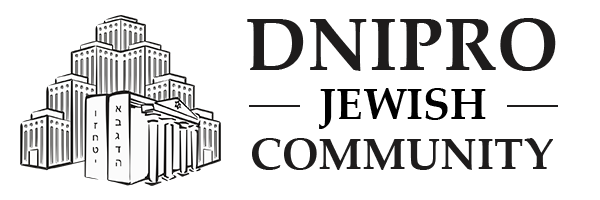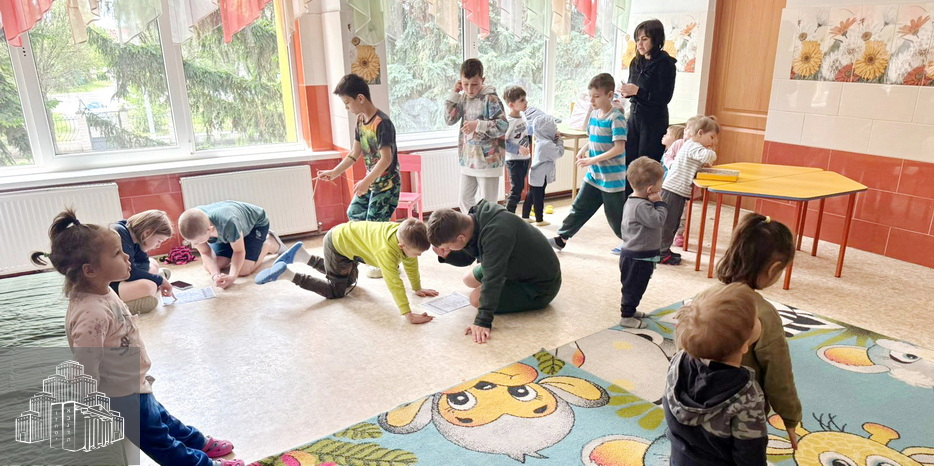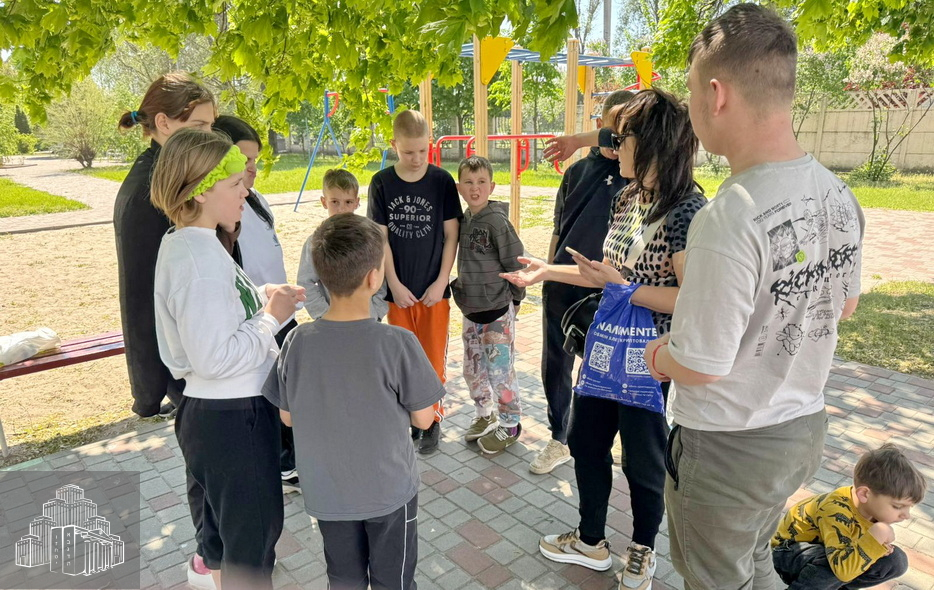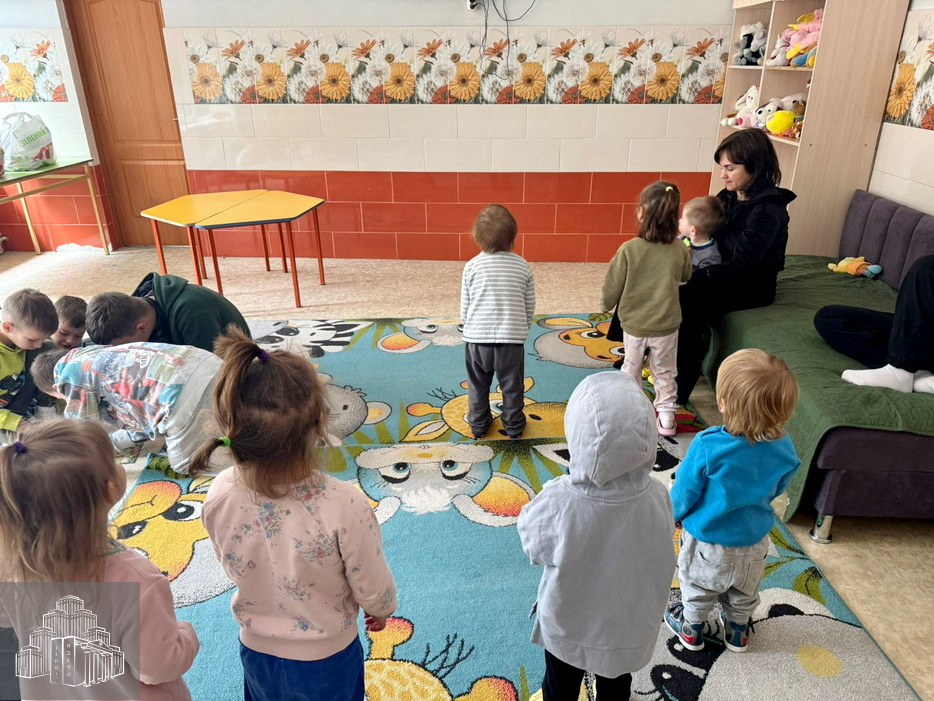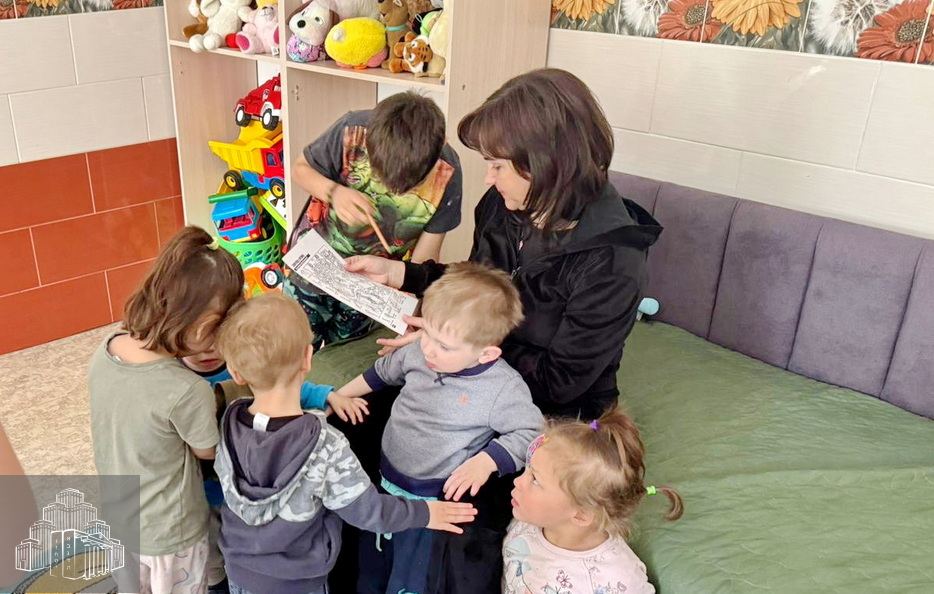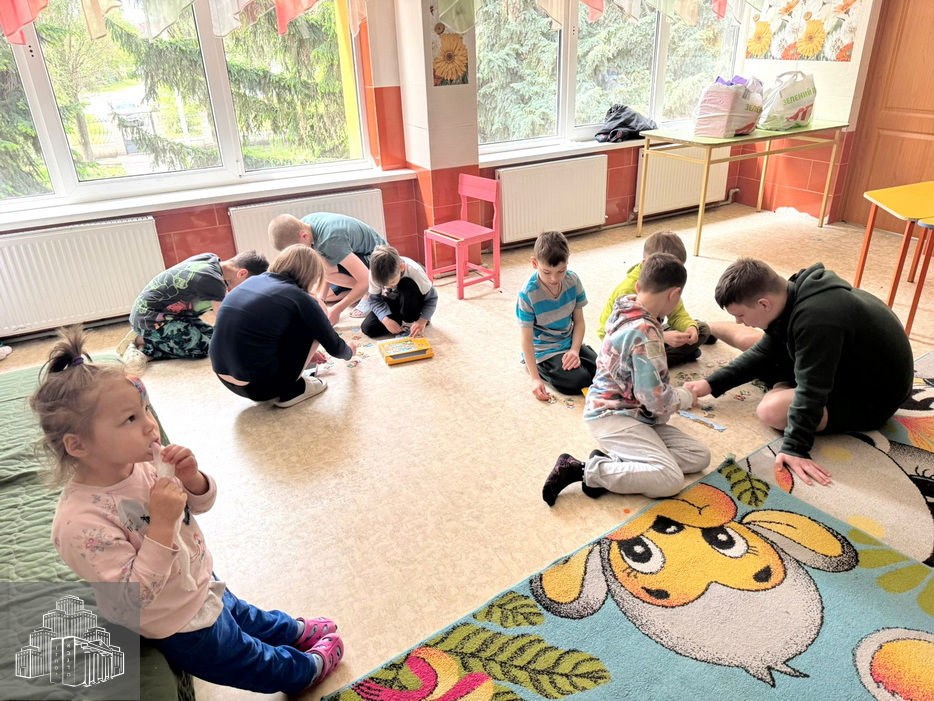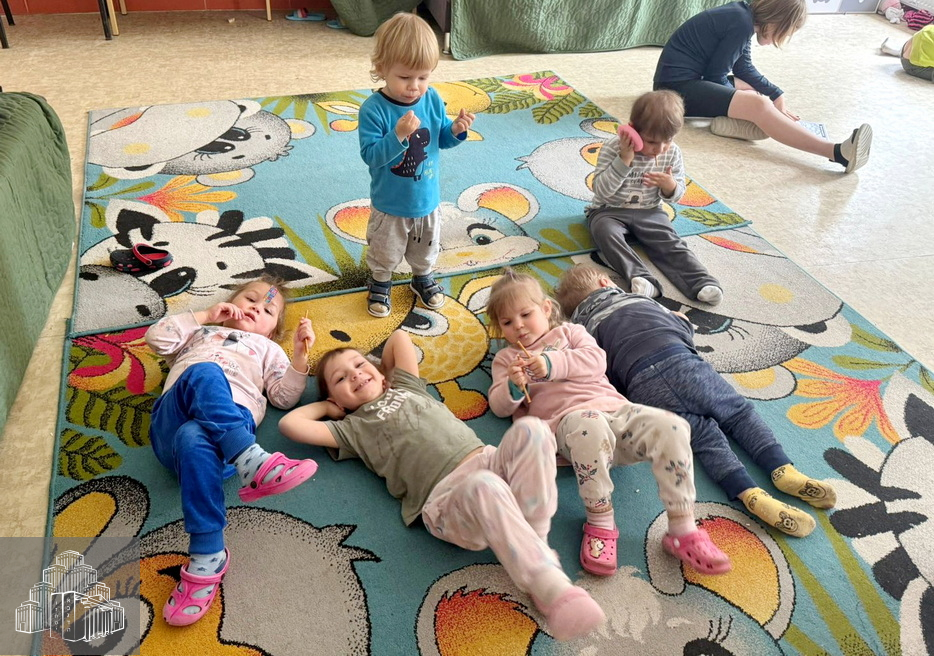This week, the volunteer project “Tov ve Hesed” of the Jewish Community of Dnipro held an educational session for children based on the weekly Torah portion Emor. The session explained the foundations in Judaism for the different expectations placed on various groups of people, the reasoning behind such distinctions, and how they are rooted in the principles of a just society and fundamental moral values.
Hana Neskhes, head of the Tov ve Hesed project, spoke to the children about why the Torah explicitly forbids harvesting the corners of a field, why every landowner is obligated to leave a portion for the poor, for displaced persons, and other vulnerable members of society, how this differs from charity, and how the principle can be applied in today’s world. Special focus was given to the differing responsibilities of various groups — in particular, the kohanim (priests), and especially the Kohen Gadol (High Priest): why certain actions permissible or even commendable for the average person are forbidden for the kohanim, and what these distinctions are based upon.
In addition to the educational component, as always, there was plenty of informal communication, games, and various activities — all essential for healthy child development. The Tov ve Hesed volunteers brought tasty treats and created a festive atmosphere that has already become an integral part of these children’s lives — a cherished weekly tradition.
The Tov ve Hesed volunteer initiative, led by Hana Neskhes, regularly visits children in need of special care — those who grow up without parental guardianship and live in specialized institutions created as part of the Dobre vdoma (“Good at Home”) program.
